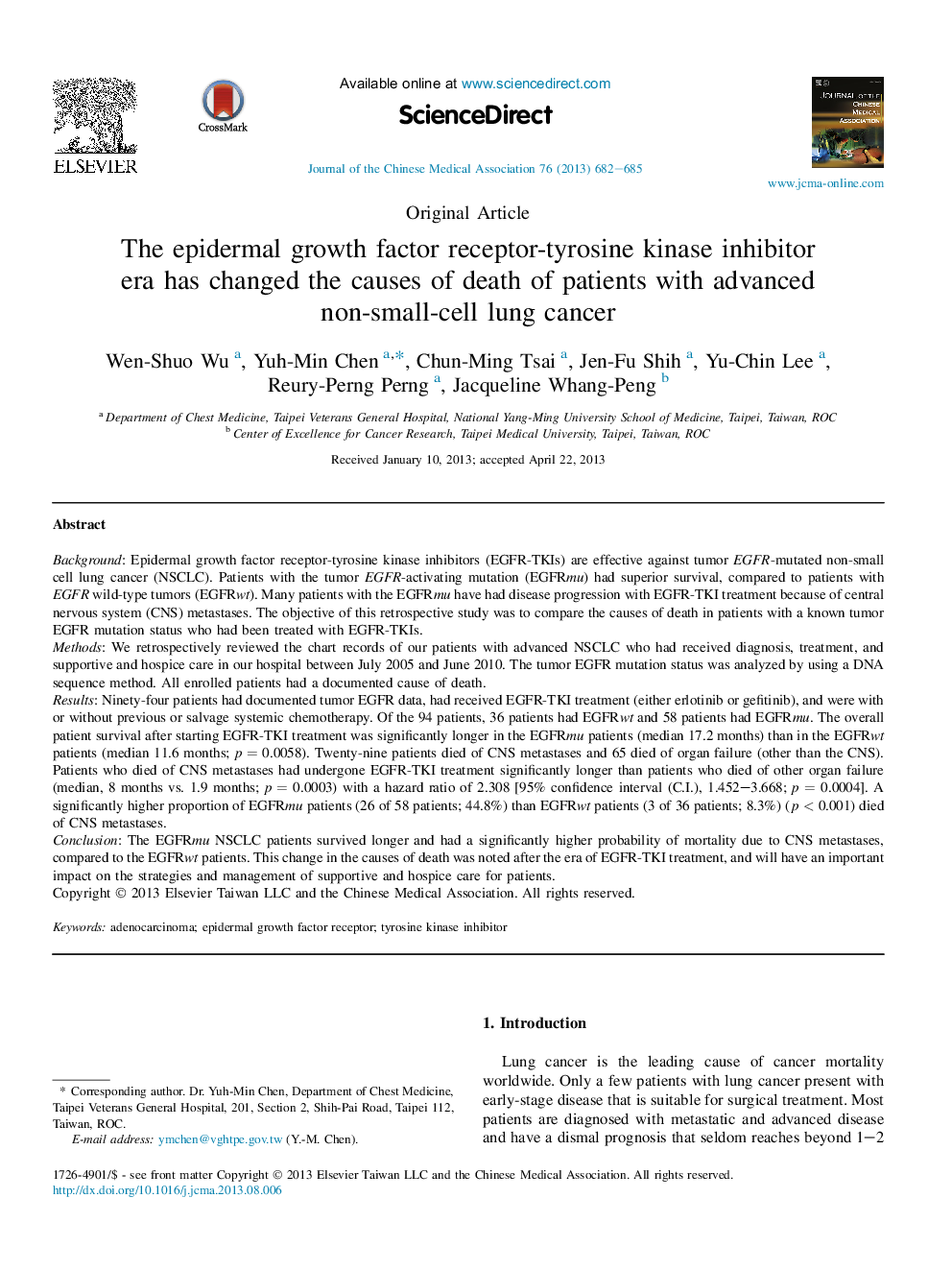| کد مقاله | کد نشریه | سال انتشار | مقاله انگلیسی | نسخه تمام متن |
|---|---|---|---|---|
| 3476212 | 1233246 | 2013 | 4 صفحه PDF | دانلود رایگان |

BackgroundEpidermal growth factor receptor-tyrosine kinase inhibitors (EGFR-TKIs) are effective against tumor EGFR-mutated non-small cell lung cancer (NSCLC). Patients with the tumor EGFR-activating mutation (EGFRmu) had superior survival, compared to patients with EGFR wild-type tumors (EGFRwt). Many patients with the EGFRmu have had disease progression with EGFR-TKI treatment because of central nervous system (CNS) metastases. The objective of this retrospective study was to compare the causes of death in patients with a known tumor EGFR mutation status who had been treated with EGFR-TKIs.MethodsWe retrospectively reviewed the chart records of our patients with advanced NSCLC who had received diagnosis, treatment, and supportive and hospice care in our hospital between July 2005 and June 2010. The tumor EGFR mutation status was analyzed by using a DNA sequence method. All enrolled patients had a documented cause of death.ResultsNinety-four patients had documented tumor EGFR data, had received EGFR-TKI treatment (either erlotinib or gefitinib), and were with or without previous or salvage systemic chemotherapy. Of the 94 patients, 36 patients had EGFRwt and 58 patients had EGFRmu. The overall patient survival after starting EGFR-TKI treatment was significantly longer in the EGFRmu patients (median 17.2 months) than in the EGFRwt patients (median 11.6 months; p = 0.0058). Twenty-nine patients died of CNS metastases and 65 died of organ failure (other than the CNS). Patients who died of CNS metastases had undergone EGFR-TKI treatment significantly longer than patients who died of other organ failure (median, 8 months vs. 1.9 months; p = 0.0003) with a hazard ratio of 2.308 [95% confidence interval (C.I.), 1.452–3.668; p = 0.0004]. A significantly higher proportion of EGFRmu patients (26 of 58 patients; 44.8%) than EGFRwt patients (3 of 36 patients; 8.3%) (p < 0.001) died of CNS metastases.ConclusionThe EGFRmu NSCLC patients survived longer and had a significantly higher probability of mortality due to CNS metastases, compared to the EGFRwt patients. This change in the causes of death was noted after the era of EGFR-TKI treatment, and will have an important impact on the strategies and management of supportive and hospice care for patients.
Journal: Journal of the Chinese Medical Association - Volume 76, Issue 12, December 2013, Pages 682–685